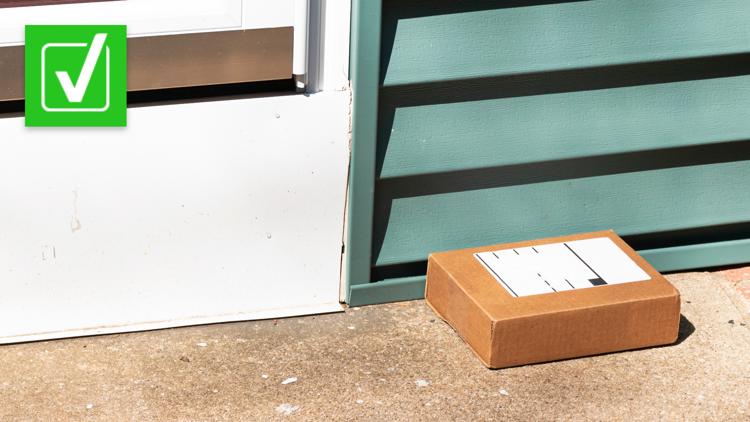Many pharmacies, including CVS, Walgreens, Walmart and Amazon, allow customers to have prescriptions mailed directly to their homes, instead of having to go into a store to pick them up.
A VERIFY reader reached out to ask if their medicine is still usable if their prescription package gets held up at a mailing office or is left on their doorstep in the summer heat.
THE QUESTION
Can heat damage mail-order prescriptions?
THE SOURCES
Jennifer Bourgeois, Pharm.D., SingleCare Health Expert
A Mayo Clinic article
A Baylor College of Medicine article
THE ANSWER
Yes, heat can damage mail-order prescriptions.
WHAT WE FOUND
Medications left in high temperatures for extended periods of time can lose effectiveness, medical experts say.
This is because heat can potentially change the chemical makeup of drugs, according to Baystate Health.
“Elevated temperatures can cause the molecular structures within these drugs to degrade, resulting in diminished potency and effectiveness,” Jennifer Bourgeois, Pharm.D., explained to VERIFY. These molecular changes then impact the physical properties of the medication.
Medicine should not be taken if “it has changed color, texture, or odor even if it has not expired,” a Baylor College of Medicine article says. Capsules or tablets that are cracked, harder or softer than usual or sticky may also be heat damaged, the college says.
In high temperatures, cream and gel medication may “become too watery or overly thick, which can interfere with their consistency and usage,” Bourgeois adds.
Ineffective medicine can lead to adverse health effects. “For example, if insulin doesn’t work, it can cause hypoglycemia or if nitroglycerin doesn’t work, then it won’t relieve acute chest pain,” Bourgeois says.
Some medications are more sensitive to heat than others. Those include hormonal drugs, like birth control, chemotherapy drugs and anti-seizure medications, as well as thyroid medications, insulin, nitroglycerin, and some antibiotics, Baystate Health and Bourgeois say.
Medicines come with instructions for storage temperature, but “most medications should be stored at room temperature, between 68 and 77 degrees Fahrenheit,” the American Society for Health-System Pharmacists says.
While the length of time it takes for heat to damage medication varies due to the chemical properties of each item, “consistent temperatures above and below” room temperature “can have a significant impact on the potency of the medication,” Bourgeois adds.
Some mail-order prescription companies take precautions to protect medications that are sensitive to heat. For example, CVS Caremark service ships medications in temperature-controlled packaging when needed, the company says.
Baystate Health recommends ensuring someone will be home to pick up medicine when it arrives to avoid it sitting out too long in the hot sun.
It’s important to consult with a doctor to determine if a medicine should be thrown out.



